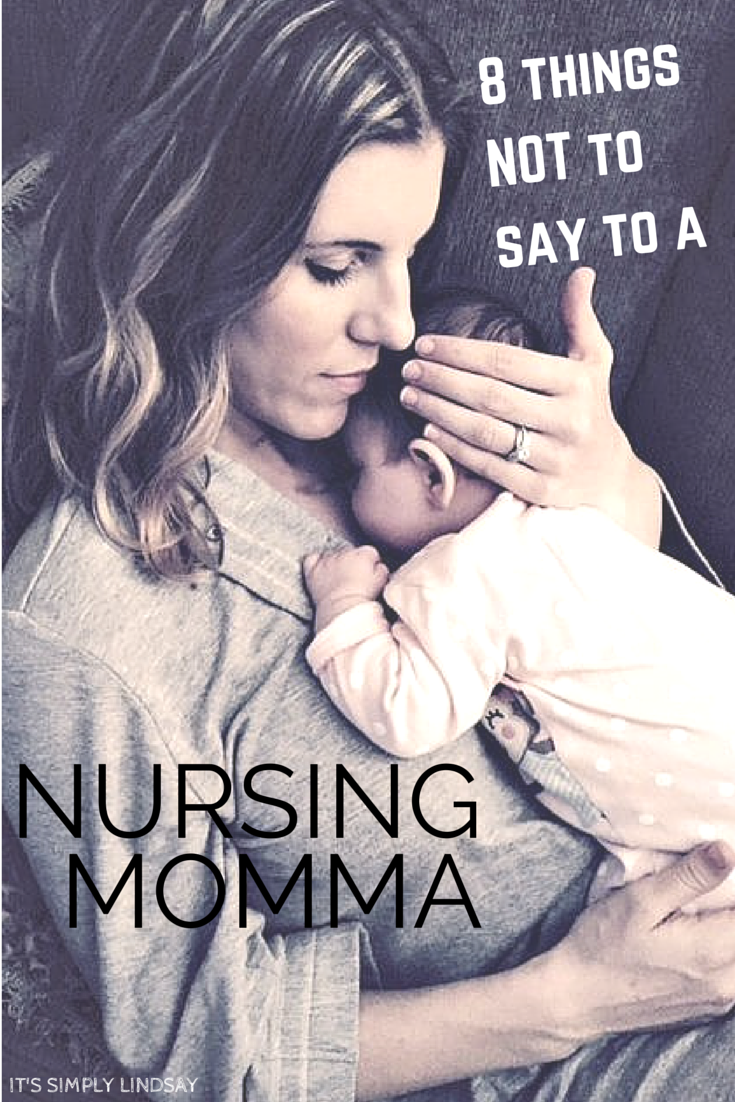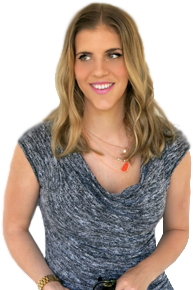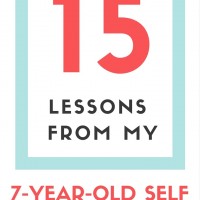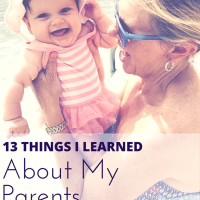
Once you get married, it’s incredible how personal people get with their inquiries and opinions about your life. Suddenly, everyone from your in-laws, co-workers, and neighbors ask when you’re going to expand your family and expect to know if ‘you’re trying.’ When did it become acceptable to openly ask someone if they’re actively having unprotected sex?? Not to mention that many people are ‘trying’ and feel stabbed with these queries when their ‘trying’ hasn’t resulted in a pregnancy yet. But I digress.
Now you’ve had a baby and the inappropriate invasions continue. From sex to breasts, now that you’re a nursing mother, your critics and inquirers have expanded to perfect strangers. Now, people think it’s their right to use the way you feed your child as an acceptable platform to voice their opinion, either to you privately or even broadly with malice on social media. Though many comments irritate me, because I believe people just don’t know better, I rather educate and spread the word than berate the offenders. They could be offending and not even know it. With that being said, I have compiled a list of the top eight things to refrain from saying to a nursing mother.
8 Things Not To Say To A Nursing Momma
- “You’re feeding again? Didn’t you just feed…?” As my baby’s mother, no, I may not have all the answers and may seek advice when I need it, but I know what’s best for my child. I know when she needs to eat, which may be quite frequently. And that’s ok! As adults, the best diet suggests eating several small meals a day, but nobody criticizes adults’ healthy practices. How would you feel if someone pointed out everything and every time you ate? Breastmilk is easily and quickly digested, so babies eat frequently to get nourished, which also helps mom establish and keep her milk supply.
- “She’s using you as a pacifier.” Babies nurse for more than nutrition- they nurse for comfort, too, which creates a close bond with mom and establishes trust and a sense of well-being. So yes, she may be sucking for comfort (or using me as a pacifier), but I love that my body makes my baby feel secure, warm, cozy, and happy.
- “Isn’t breastfeeding supposed to make the pounds fall off…*insert judgmental look*” I loved learning that breastfeeding made you lose weight so easily, hearing that nursing even took the place of exercising and the pounds just melted off. While this may be the case for some women, the rest of us ravenous nursing moms obstinately cling to the extra weight and cannot lose it until we finish breastfeeding, even with healthy eating habits and exercise. The culprit? The hormone prolactin can inhibit weight loss and even cause weight gain since it reduces the body’s metabolism of fat. This stubborn little hormone is actually nature’s safeguard to protect a woman’s milk supply in the event of famine- the fat storage ensures that there is an energy source for a mom to keep making milk. Prolactin isn’t an excuse for poor eating though; nursing moms need to eat frequently and healthy for themselves and their babies.
- “It’s so natural.” Of course the suckling instinct is a natural one, and nothing is more gratifying and beautiful than watching a newborn go straight to his mom’s breast without being taught that’s what he needs. In that sense, breastfeeding is natural. However, hearing people boast its innate nature implies that it should be an effortless, relaxed, and organic experience. Try telling that to the thousands of women with cracked, burning, bleeding nipples and painful-engorgement-turned-mastitis that leads to a trip to the ER. Try telling that to the mom who spends hundreds of dollars, time, and energy working with lactation consultants to correct their baby’s latch, practice tongue-tie exercises, or even have their babies in newborn chiropractic to help with their ability to feed. Babies are able to flourish these days because we have such extensive knowledge and resources that help support, teach, and correct breastfeeding challenges for the baby and mom. Saying that ‘it’s so natural’ suggests a happy, carefree mom nursing her smiling baby in an open pasture, the sun shining down upon them every time. While this may be the case for some moms during some nursing sessions, certainly many women have worked hard and should be credited for their work, not nature’s.
- “Is the baby getting enough milk? He seems hungry.” When outsiders suggest that your baby seems hungry or questions the amount of milk he’s getting from you, it can be embarrassing, annoying, or make you doubt yourself. Breastfeeding moms often question their supply and are self-conscious about it; having someone else question them indicates that their body isn’t doing what it’s supposed to, leaving the mom riddled with guilt and doubt.
- “I thought breastfed babies have rolls.” Society and the media praise women who are skinny, leaving debilitating effects on many girls’ self-esteems and body images. Why do we have to comment on people’s figures at all? I think comments about bodies should be left to a person’s doctor. While many people love chubby baby rolls, not all babies have rolls. Fat baby does not equal healthy baby, and thin baby does not equal unhealthy baby. A mom might question herself or her milk when someone points out her lack of rolls. I think a good rule is to keep comments about people’s bodies to yourself, but feel free to comment on how cute the baby.
- “I’m all for breastfeeding, just not those women who have to do it in public.” I have heard this comment from lots of people-including breastfeeding moms! This is a really popular and controversial topic on social media these days. Let me explain something about breastfeeding- it can be very isolating. While a mom used to be able to run out to the store to grab milk, indulge in a spontaneous shopping trip, or go out to dinner and a movie with friends, her world suddenly becomes very small and limited between her milky boobs and fear of judgment from nursing in public. It’s ridiculous to think that because a woman becomes a mom, not only does she willingly give her body, heart, and life to her child, but she also must become a recluse. I don’t think so! Moms are people, too. I see more of women’s boobs of those who are not breastfeeding yet hear no complaints about that. Believe it or not, nursing moms do not have a secret desire to show their boobs in public; many women are very self-conscious about it and need lots of support to even leave the house knowing they will have to feed their baby outside the safety of home. If you say you support breastfeeding but not in public, you don’t support breastfeeding at all. And no, covering up or nursing in the bathroom are not fair compromises. How would you like eating with a blanket covering your head? You’d probably feel pretty hot, stifled, and distracted. When was the last time you sent the waiter to the bathroom so you could sit in a dirty stall to enjoy your meal?
- “This feeding on demand trend is too much- my babies were all scheduled.” Medical research supported by the American Academy of Pediatrics and La Leche League lactation experts states that the best way for babies to eat is “on demand” rather than on a schedule. This baby-led plan is the best and healthiest for the mom and baby for a variety of reasons, including:
- The more often a mom nurses, the sooner her milk comes in and gets established
- It can help alleviate and prevent engorgement
- Since babies go through growth spurts, on-cue feeding increases the mom’s milk supply to meet his/her needs
- Establishes trust in your baby that you will listen to her and respond to her needs
- It’s even possible that scheduled feeding — for breastfed and bottle-fed babies alike — has a negative impact on cognitive development (Iacovou and Sevilla 2013)
Moms-I hope you share this with their families and friends to spread the information and awareness. We can’t get irritated at others if we don’t try to inform them. Take time to talk about breastfeeding so it becomes normalized.
Family and friends- ask questions! I can guarantee any mom would jump at the opportunity to have a conversation with you. Come at it from a productive place and take the opportunity to learn.
Iacovou M and Sevilla A. 2013. Infant feeding: the effects of scheduled vs. on-demand feeding on mothers’ wellbeing and children’s cognitive development. Eur J Public Health. 23(1):13-9.














